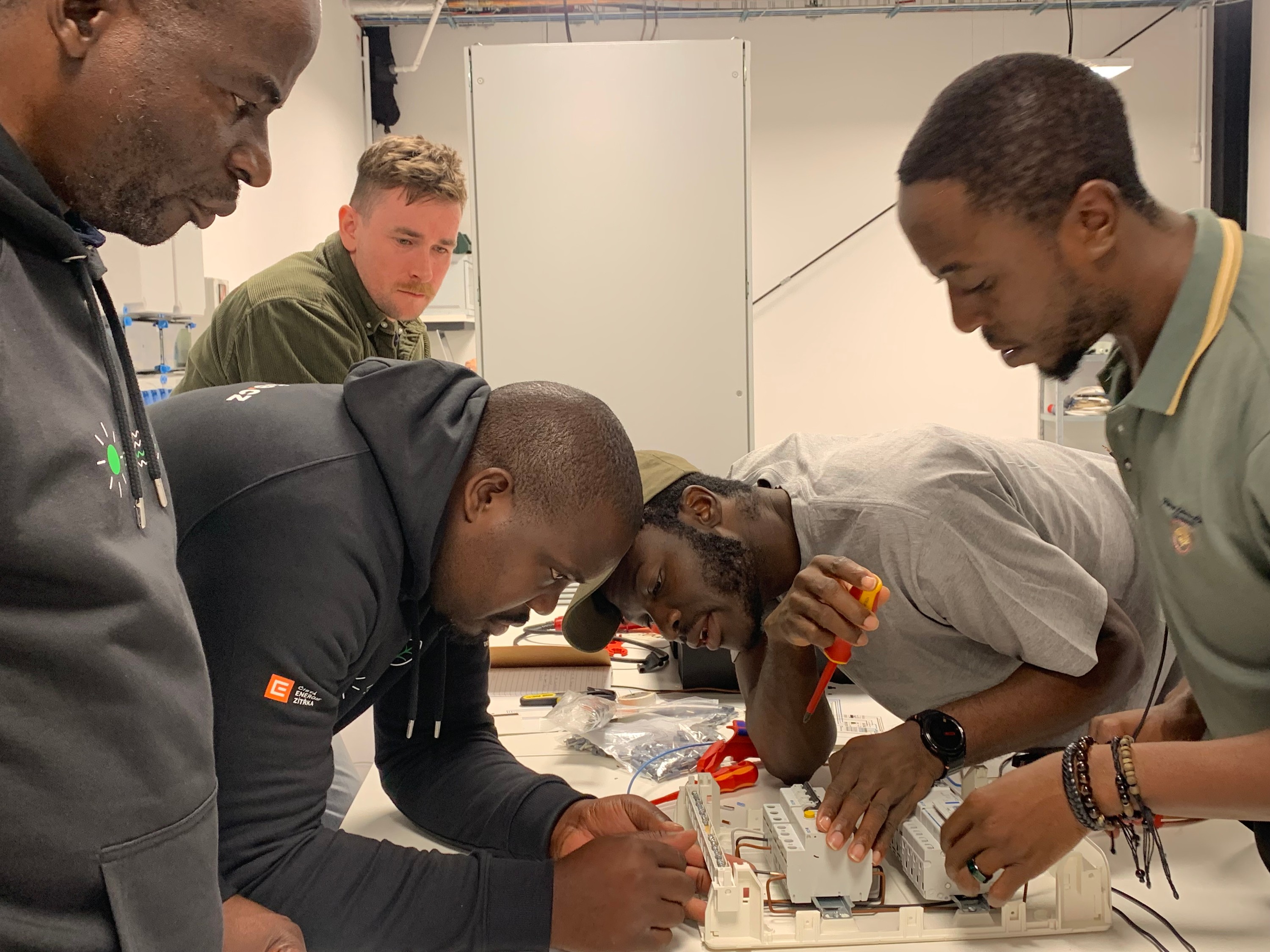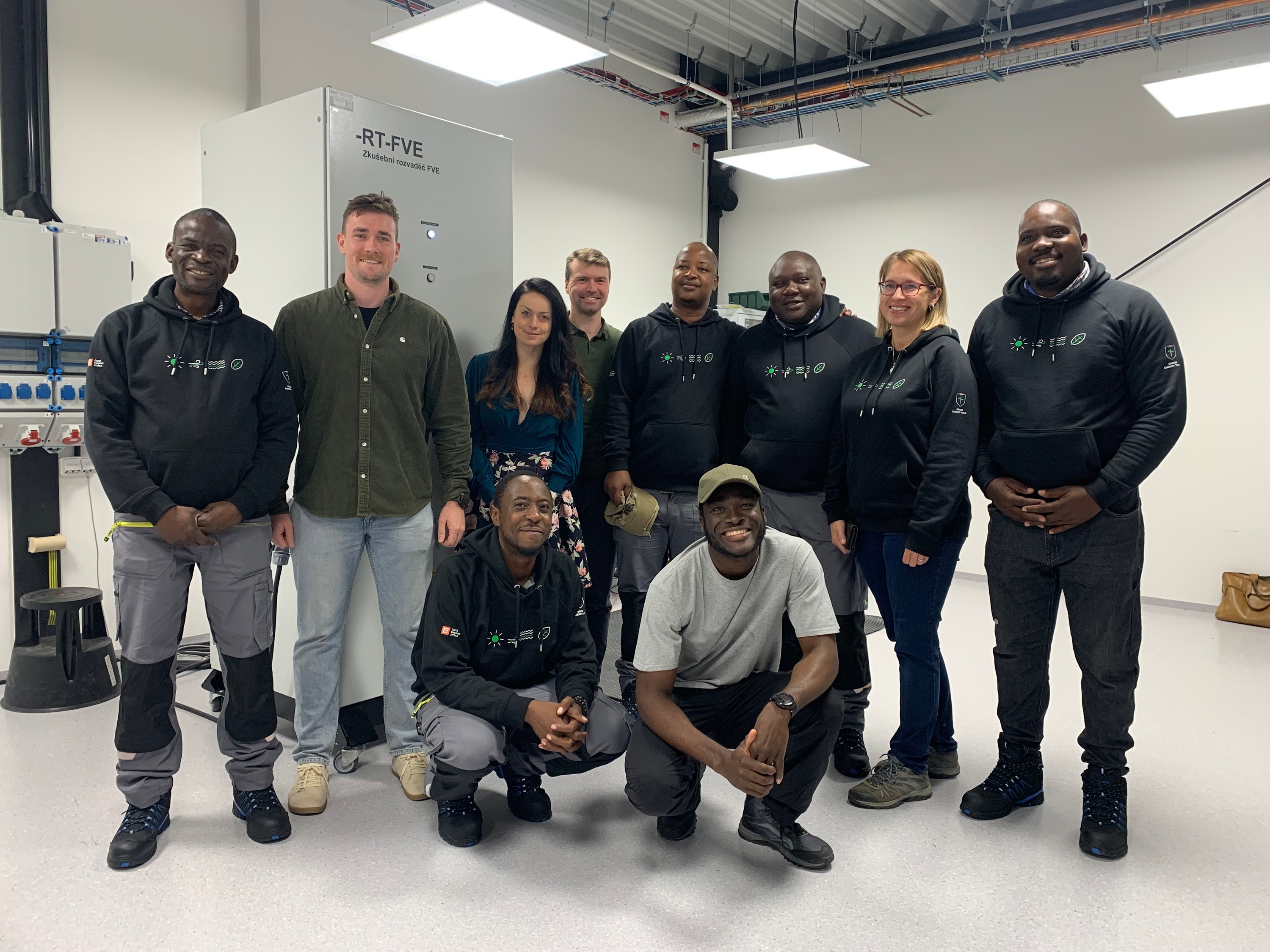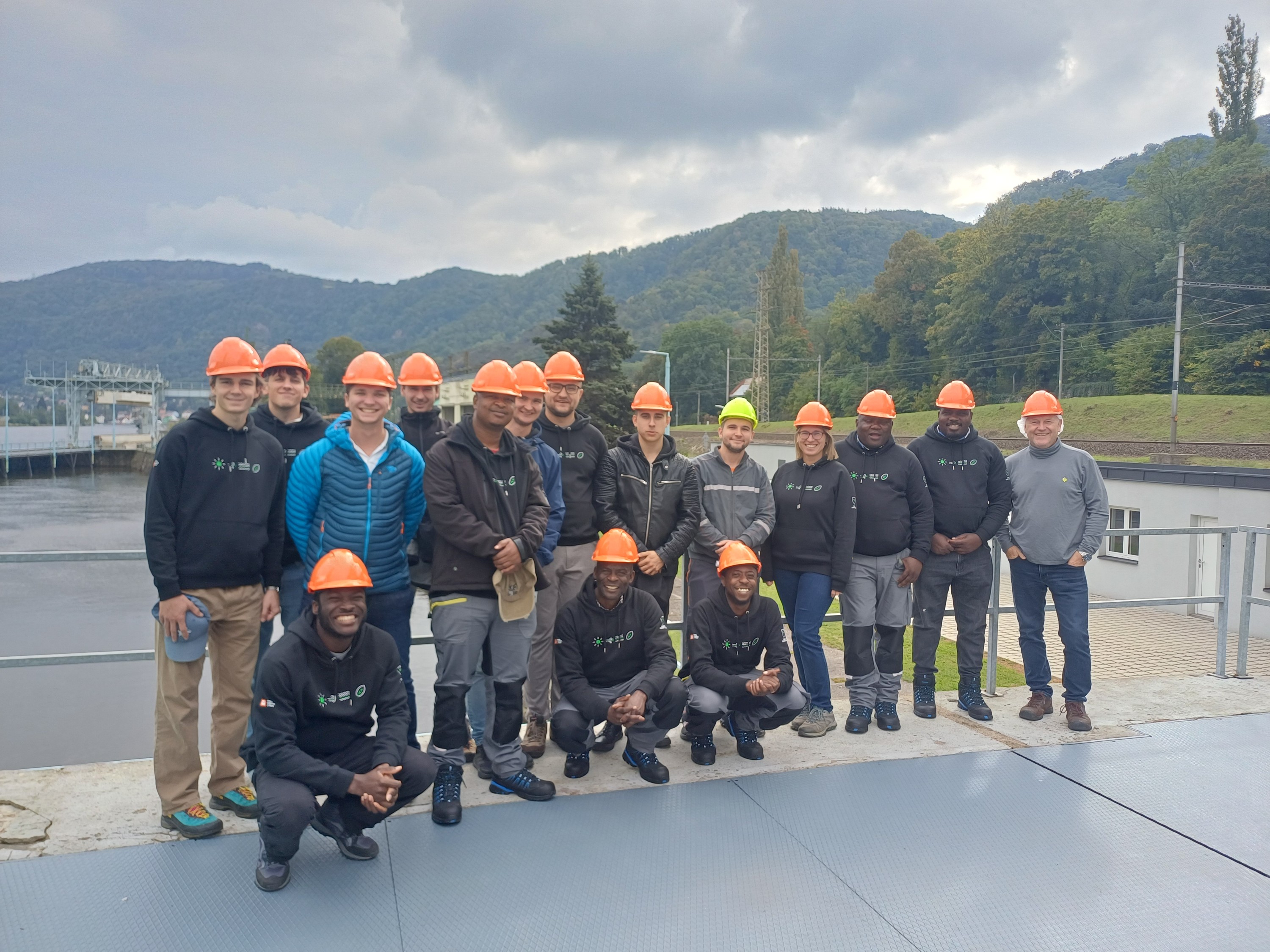CEZ Group’s “Photovoltaic Academy” teams up Czech university students with African technicians in a unique educational programme
CEZ Group launched a new programme called Photovoltaic Academy, aimed at providing insight into the latest trends concerning large solar installations in the energy sector. The intensive, week-long internship teamed up students from Czech universities with technicians from Zambia and Lesotho, two countries where CEZ Group implements foreign ESG projects aimed at mitigating climate change and strengthening the resilience of local communities. The Photovoltaic Academy programme fulfils the United Nations Sustainable Development Goal (SDG) Number 7: to ensure access to affordable, reliable, sustainable and modern energy for all.

CEZ Group’s new Photovoltaic Academy programme focuses on education in the sphere of solar energy utilisation, providing practical know-how both to both domestic and foreign participants, specifically those from selected developing African countries. The programme is part of CEZ Group’s cooperation with Mendel University in Brno, which has long been involved in educational and environmental projects in Africa. A total of 14 participants took part in the very first Photovoltaic Academy.
 Over the course of five days, CEZ Group’s Photovoltaic Academy featured a packed programme for nine students from three Czech Universities and five technicians from Zambia and Lesotho, taking them to, among other places, three photovoltaic and two hydroelectric power plants, a modern renewable energy control centre, and a university laboratory. They spent two days in practical training in new workshops of Martia, a CEZ Group company, focusing on the entire process of preparing, assembling, commissioning, and measuring the performance of photovoltaic systems. Several CEZ experts attended to the participants and they also met a representative of CEZ’s senior management, board member and Chief Sustainability Officer Michaela Chaloupková, who took patronage over the programme.
Over the course of five days, CEZ Group’s Photovoltaic Academy featured a packed programme for nine students from three Czech Universities and five technicians from Zambia and Lesotho, taking them to, among other places, three photovoltaic and two hydroelectric power plants, a modern renewable energy control centre, and a university laboratory. They spent two days in practical training in new workshops of Martia, a CEZ Group company, focusing on the entire process of preparing, assembling, commissioning, and measuring the performance of photovoltaic systems. Several CEZ experts attended to the participants and they also met a representative of CEZ’s senior management, board member and Chief Sustainability Officer Michaela Chaloupková, who took patronage over the programme.
“This concept extends our educational activities far beyond the borders of the Czech Republic. We are pleased to share our experts’ know-how with technicians from Zambia and Lesotho – countries that have an immense potential for the use of solar power – to help them improve the installations and to subsequently maintain them independently. For Czech students, this is an interesting opportunity to look at the issue of photovoltaic installations from a global perspective – for example, at how they must be able to function in different geographic, climatic, and technical conditions. In short, the project is mutually enriching. I am glad that we have received very positive feedback on the programme, and I believe that its future editions will be equally successful,” said Michaela Chaloupková.
Participants from Zambia and Lesotho had been in contact with some of their Czech colleagues from CEZ Group via the online technical mentoring programme, which has been running since last year. Meeting them in person, combined with practical training, was extremely inspiring from them. “A lot of the things we have learned here can be incorporated into practice back home or used to improve our existing processes – especially in safety systems and procedures that we do not use. It will help us improve the safety of our work and of the installations themselves,” said Maurice Chinyama, from the Solar Energy Centre of Excellence at the University of Zambia. 
In terms of the global sustainability goal SDG 7 (to ensure access to affordable, reliable, sustainable, and modern energy for all), CEZ Group has also been actively involved in improving the lives of people in developing countries. In 2024, it became a partner of the Lead 2030 challenge organised by the One Young World international platform, supporting young people from around the globe striving for a more sustainable world. The winner of the challenge, Matsepiso Majoro from Lesotho, received a financial grant for expanding a project for the installation of off-grid photovoltaic systems in Lesotho’s rural areas, and a year-long mentoring programme. This year, CEZ Group has also launched cooperation with Mendel University in Brno, which is implementing several programmes in Zambia. The projects supported by CEZ focus on reforestation, biodiversity protection, and carbon sequestration, thus contributing to the fight against climate change, as well as on supporting modern irrigation technologies, access to renewable sources of energy, and education for local farming communities.
- The country’s largest steam-gas heat source to be built at Mělník
- ČEZ’s renewable sources to be managed from a single location
- Further emissions reduction: CEZ Group releases its first Sustainability Report aligned with European CSRD Directive
- Lithium Mining and Processing in Ústí nad Labem Region Included Among European Union’s Strategic Projects